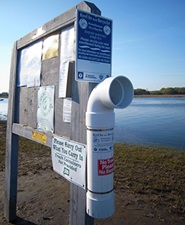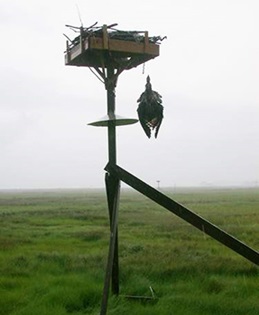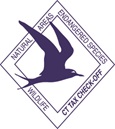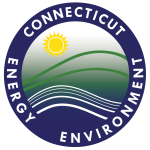Connecticut Fishing Line Recycling Locations
Help Protect Wildlife
 Carelessly discarded fishing line can seriously harm or kill wildlife. Animals can become entangled in, or ingest, the line, which can cause starvation, strangulation, and deep wounding. Wildlife usually cannot survive the injuries they sustain from entanglements.
Carelessly discarded fishing line can seriously harm or kill wildlife. Animals can become entangled in, or ingest, the line, which can cause starvation, strangulation, and deep wounding. Wildlife usually cannot survive the injuries they sustain from entanglements.
 To prevent incidents like the dead osprey (pictured left) found in Old Lyme, the DEEP, along with the Menunkatuck Audubon Society and Connecticut Audubon Society, has installed monofilament fishing line recycling receptacles at inland and coastal sites around the state to encourage less waste line in the environment. The disposed fishing line is collected by volunteers and then sent to a company that recycles it to make underwater habitat structures for fish. Presently, 35 receptacles are set up in Connecticut, spanning throughout 21 towns. Make a difference for wildlife by properly disposing of fishing line, hooks, lures, weights, and all other trash.
To prevent incidents like the dead osprey (pictured left) found in Old Lyme, the DEEP, along with the Menunkatuck Audubon Society and Connecticut Audubon Society, has installed monofilament fishing line recycling receptacles at inland and coastal sites around the state to encourage less waste line in the environment. The disposed fishing line is collected by volunteers and then sent to a company that recycles it to make underwater habitat structures for fish. Presently, 35 receptacles are set up in Connecticut, spanning throughout 21 towns. Make a difference for wildlife by properly disposing of fishing line, hooks, lures, weights, and all other trash.
Find the Recycling Receptacle Nearest You
Select the link for your town of interest, and you will be directed to a map with the address of receptacles within that town.
Avon
Branford
Bridgeport
Bridgeport (Multiple Locations)
Colchester
Fairfield (Multiple Locations)
Farmington
Griswold
Groton
Guilford
-Guilford Harbor
-Mill Pond
-Quonnipaug Lake
Hamden
Madison
-Hammonasset Beach State Park
-Neck River
Milford
-Castwell Cove
-Gulf Beach
-Long Island Sound
-Milford Harbor
New Fairfield
-Ball Pond
-Squantz Pond State Park
Old Lyme
Salem
Salisbury
Stonington
Stratford
Torrington
Watertown
West Haven
Winchester
NEW! Nineteen fishing line recycling receptacles were recently installed at local docks and piers in Fairfield and Bridgeport by five high school students from Fairfield. DEEP will collect the discarded line from a site monitor who will periodically empty their assigned receptacle. The Connecticut Audubon Society was the lead sponsor of the project.
If there isn’t a convenient location in your community to recycle fishing line, consider starting your own recycling program at your favorite fishing site. Start by talking to your local marina, tackle shop, or fishing supply store to see if they’d be interested in starting a recycling program. The Berkley Conservation Institute makes it easy for retailers, groups, and individuals to create their own recycling collection programs for fishing line. To participate as a retailer, you can request a recycling collection bin and it will be shipped at no charge. As individuals, you can mail it directly to Berkley.
Help protect wildlife and keep your favorite fishing area clean by placing waste fishing line in a recycling receptacle. It's the responsible thing to do!
 Fishing line, hooks, lures, sinkers, kite string, helium balloons, plastic bags, and other carelessly discarded trash are deadly to wildlife. This red-throated loon was found in Guilford with fishing tackle entangled around its body. Unfortunately, the loon could not be caught to remove the fishing line, and its fate remains unknown.
Fishing line, hooks, lures, sinkers, kite string, helium balloons, plastic bags, and other carelessly discarded trash are deadly to wildlife. This red-throated loon was found in Guilford with fishing tackle entangled around its body. Unfortunately, the loon could not be caught to remove the fishing line, and its fate remains unknown.
Please retrieve these items and discard them in covered trash or recycling containers. We all can help further by picking up other people's trash, especially along our waterways.

The Monofilament Fishing Line Recycling Project received funding from Connecticut's Endangered Species/Wildlife Income Tax Check-off Fund.
Content last updated on February 6, 2020.

